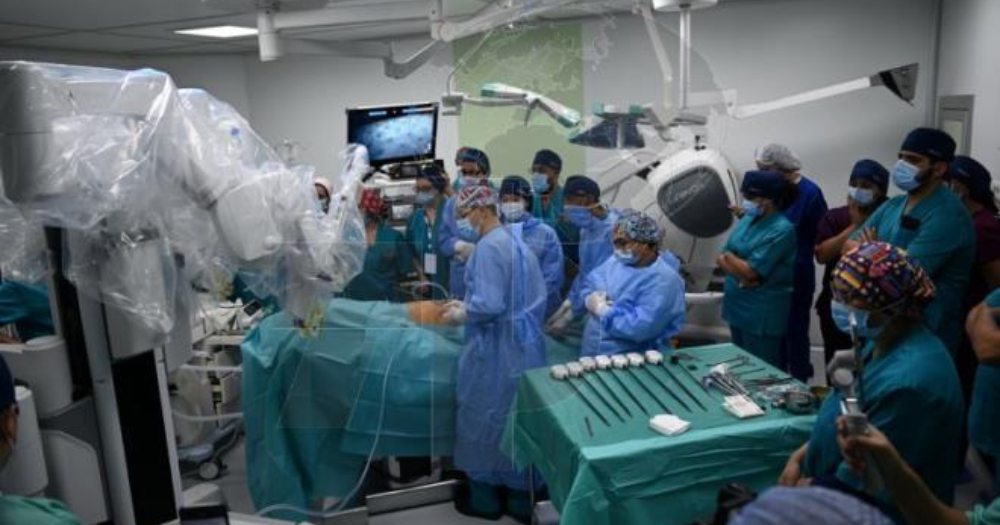Medical team in Tunisia succeeds in performing the first robotic gastrointestinal surgery

Tunisia has just turned a new page in surgical history. At Charles Nicolle University Hospital in Tunis, a medical team successfully performed the country's first-ever robotic gastrointestinal surgery. The operation — a gallbladder removal from a 38-year-old woman — lasted 45 minutes and went off without a hitch.
For Dr. Ramzi Nouira, who heads General Surgery Department B, the moment marked more than a milestone. "Robotic surgery represents the future of surgical practice," he said.
How does it work?
In this procedure, the robot didn't act on its own. It's more like a highly sophisticated extension of the surgeon's hands — steady, tireless, and precise. "It is the surgeon who controls the robot from start to finish," Dr. Nouira explained. The system enables precise, controlled movements that reduce bleeding, enhance accuracy, and expedite recovery time. Patients benefit from smaller incisions, less pain, and quicker hospital discharge.
The newly installed robotic system at Charles Nicolle Hospital is designed for procedures that were once performed laparoscopically. That means it can now handle more delicate surgeries — like partial liver or colon resections — with enhanced precision. The hospital's medical staff received two weeks of training in South Korea, where the robot was sourced under a bilateral cooperation agreement. Korean specialists later came to Tunisia to oversee installation and train the local team.
Why does it matter?
Robotic surgery isn't just about fancy machines. It's about safer, faster healing and better patient outcomes. By reducing post-operative complications and shortening hospital stays, these systems ease pressure on Tunisia's overcrowded public hospitals. They also help surgeons push the boundaries of what's possible.
Dr. Nouira highlighted another key point: robotic procedures don't replace doctors; they empower them. "The robot's importance lies in enhancing precision and efficiency," he said. Think of it as adding a new level of finesse to human expertise.
The context
Tunisia has already established a reputation in laparoscopic surgery, but this marks a significant leap toward modern, high-tech medicine. The collaboration with South Korea reflects a growing global exchange in medical innovation, bringing advanced healthcare closer to more patients in North Africa.
The success of this operation didn't happen in isolation — it was the result of tight teamwork between doctors, nurses, and engineers. It's also a signal that Tunisia is ready to embrace the next era of medicine, where robots lend a hand but the human touch still leads the way.
💡Did you know?
You can take your DHArab experience to the next level with our Premium Membership.👉 Click here to learn more
🛠️Featured tool
 Easy-Peasy
Easy-Peasy
An all-in-one AI tool offering the ability to build no-code AI Bots, create articles & social media posts, convert text into natural speech in 40+ languages, create and edit images, generate videos, and more.
👉 Click here to learn more


